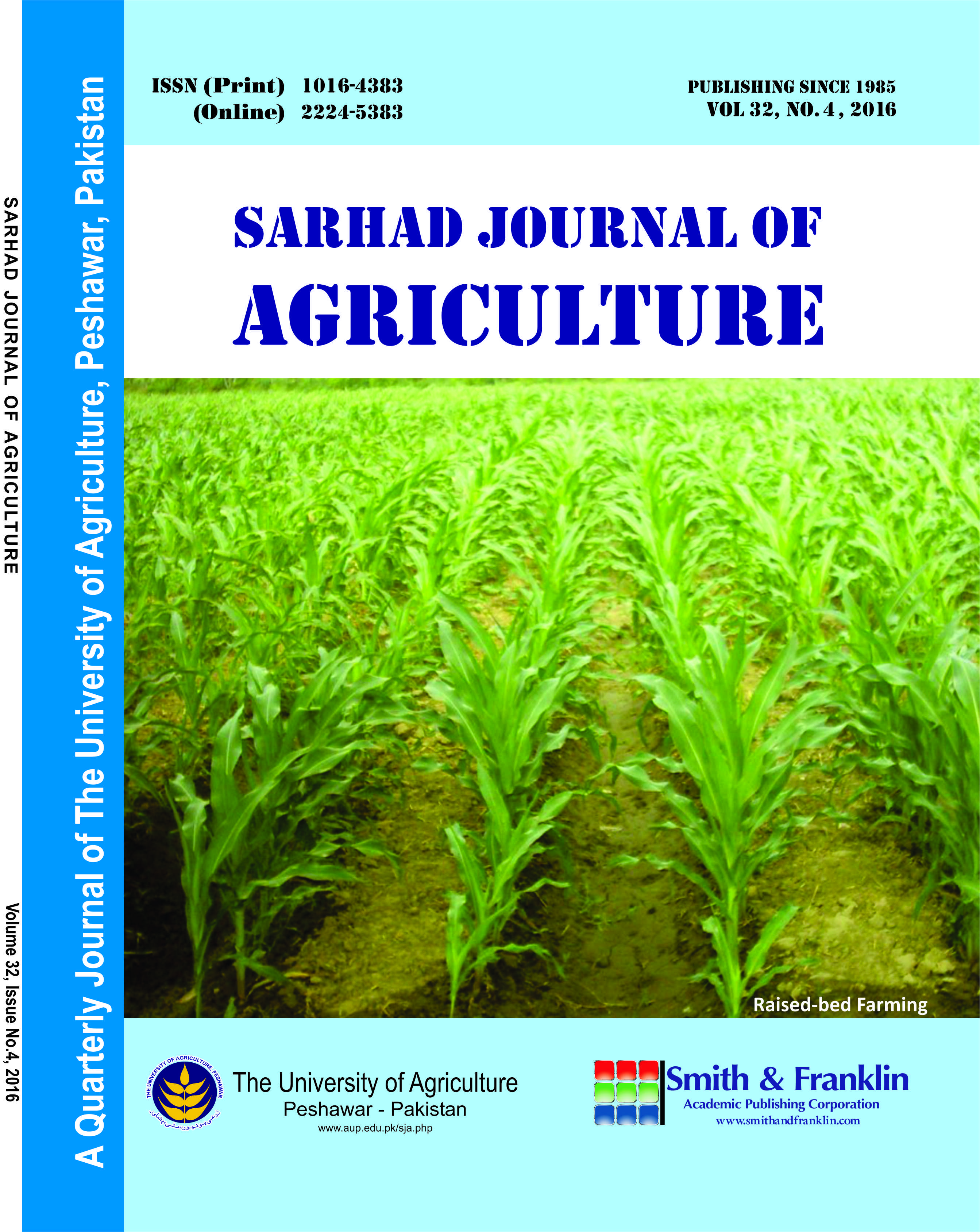Vermicompost and Mycorrhiza Effect on Yield and Phosphorus Uptake of Wheat Crop
Vermicompost and Mycorrhiza Effect on Yield and Phosphorus Uptake of Wheat Crop
Sadiq Hussain, Muhammad Sharif, Sarmad Khan, Fazli Wahid, Hina Nihar, Wiqar Ahmad, Imran Khan, Nadeem Haider and Tabassum Yaseen
ABSTRACT
A pot experiment was conducted to assess the effect of mycorrhiza inoculation with vermicompost on yield and P uptake of wheat. The experiment was carried out in Completely Randomized Design replicated four times during season 2014-15. Phosphorus (P) was applied at recommended level of 90 kg ha-1. Vermicompost was used as a source of P on the basis of its P concentration. The recommended dose of N @ 120 kg ha-1 was applied in the form of vermicompost and urea, while K was applied in the form of sulphate of potash. Spores of mycorrhiza were isolated from fresh growing crop of berseem at the University research farm and used as inoculums in this experiment. Results showed the maximum grain yield of 15.09 and 14.7 g pot-1, highest total dry matter yield of 36.3 g and 36 g pot-1, maximum roots dry weight of 5.6 and 5.41g pot-1, hundred grains weight of 4.64 g and 4.6 g were observed for the mycorrhiza inoculation with half and full dose of vermicompost treatments, respectively. Highest straw yield of 21.5 g and 21.2 g pot-1, maximum plant N uptake of 0.71 g and 0.68 g pot-1 were obtained by mycorrhiza inoculated with half and full doses of vermicompost treatments. Plants P uptake of 0.09 g and 0.08 g pot-1 were found in mycorrhizal inoculation along with full and half doses of vermicompost, respectively. Maximum concentration of Zn (0.7 mg kg-1), Cu (0.164 mg kg-1), Fe (1.0 mg kg-1) and Mn (1.63 mg kg-1) were noted in mycorrhiza inoculated treatments with recommended dose of vermicompost and these were statistically at par with treatments receiving mycorrhizal inoculation along with half and full dose of vermicompost without inoculation. Maximum spores density of 58 and 46 were recorded by mycorrhiza inoculation with half and full level of vermicompost, while root colonization of 57.8% and 46% were maximum by the treatment of mycorrhiza inculcation with vermicompost. Results suggested that inoculation of mycorrhiza with vermicompost at half as well as full dose has potential to improve yield, yield component and nutrients uptake of wheat under prevailing soil and environmental conditions.
To share on other social networks, click on any share button. What are these?







